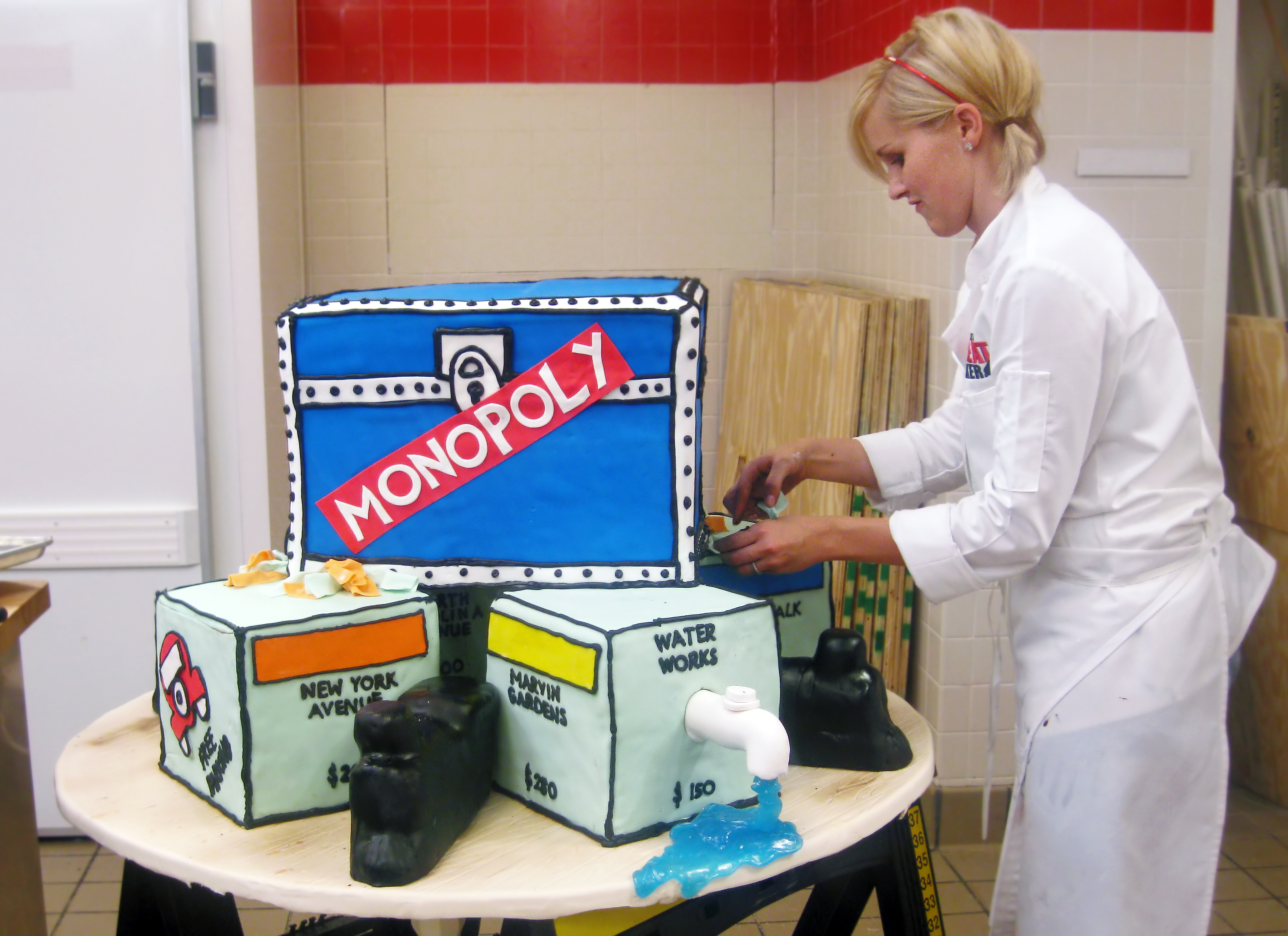With multitudes of new cake-baking shows as well as the Cooking Channel popping up on TV, the Food Network has lost its monopoly on culinary television. This week, weekly food columnist and A&E editor Maryia Krivoruchko and film and TV editor Alex Goodman discuss their opinions on the recent baking show trend, food pornography and the perceived reasons behind the popularity of watching chefs (and non-chefs) cook what you will never be able to eat.
“Worst Cooks” has just kicked off its second season on the Food Network on Sunday. What’s the value in watching culinary novices cook if they can’t even do it correctly?
Maryia Krivoruchko: I might be biased because I write a weekly column about trying to not burn down my kitchen while cooking, but I think “Worst Cooks” is a welcome change to the cupcake-obsessed, generic nightmare that food shows have become. Few people are star chefs, but everyone has to cook, which makes the show much more relatable than extreme “Iron Chef” or the expensive recipes of Emeril Lagasse.
Alex Goodman: With so many cooking shows these days extending far beyond the skill level of the average person, “Worst Cooks in America” is a nice consolation, I guess. But I’m worried about the general trend of reality television, as it seems to be indulging a voyeuristic desire to watch people fail at life. It’s one thing to identify with other people who struggle as we do, but it’s another thing to give people shows just to make fun of them.
TLC alone features four cake shows, “Cake Boss,” “DC Cupcakes,” “Fabulous Cakes” and “Next Great Baker.” WE takes a matrimonial twist with “Amazing Wedding Cakes.” What’s the point of having multiple shows about the same thing?
Maryia Krivoruchko: This baffles me. All of these shows are so similar, that it’s difficult for me to remember who baked which taro cupcake and when. “Cake Boss” is kind of amusing because Buddy Valastro yells a lot and is stereotypically Italian-American, but I am sick of seeing all of these bakers finger fondant and then put it on sponge cake people actually eat ““ it’s just not clean. If there is anything these shows taught me it’s that my mother was right ““ you shouldn’t play with your dessert.
Alex Goodman: The thing about these cake shows is that they’re not cooking shows, they’re decorating shows ““ no one cares what these cakes actually taste like. There’s nothing necessarily wrong with that, but the fact that there are so many of them is a little disturbing, since it seems inevitable that some day soon we’ll have a reality show for every single person who does anything at all.
Various sites and blogs feature spectacularly presented food photography, such as FoodPornDaily.com and foodporn.com, which actually pretends to be a porn site. Why?
Maryia Krivoruchko: Cupcake shows aside, America’s obsession with food and its presentation in the media is actually becoming disturbing. Foodporn.com actually has links such as “self-pleasuring” which take you to recipes you can make all by yourself … clever. The perversion of sexualizing food has to have deep psychological implications for America. FoodPornDaily.com isn’t as sickening, except I still cannot figure out the appeal of staring at food you’ll never eat ““ this form of masochism just makes me hungry.
Alex Goodman: Looking at this so-called “food porn” actually serves two purposes. For one thing, it can inspire us to attempt more ambitious and sumptuous-looking creations in the kitchen. For another, it could be quite a good diet program, if staring at photographs of food can take the place of eating it. Of course, the more likely effect is that looking at these pictures would just make us hungry, and we really don’t need anything else contributing to the obesity epidemic. Maybe we should stick with “organic fruits and vegetables porn.”
Popularity of the Food Network, the Cooking Channel and the multitude of baking shows on TLC and WE seems to be steadily increasing. Why do people enjoy watching other people cook food that they can’t eat?
Maryia Krivoruchko: I understand the appeal of shows such as “Semi-Homemade” and “30-Minute Meals” which can be made applicable in daily life if you actually use the recipes. But watching the Food Network at the gym is just oxymoronic, and these baking shows have spread like a mind-numbingly boring disease. That being said, my remote still tends to stop on the Food Network if I’m ever actually home for dinner … maybe watching others taste-test just makes me feel like I’m not eating alone.
Alex Goodman: Most of these shows take cooking, which is a universal activity, and make it exotic ““ the recipes are incredibly complex, or the cuisines are exotic, or the personalities are off-the-wall. So we can relate to these shows, because we’ve all cooked things, but at the same time they’re fantasies. We watch them because they present the possibility that the mundane acts of our everyday lives could actually be exciting and incredibly delicious.
